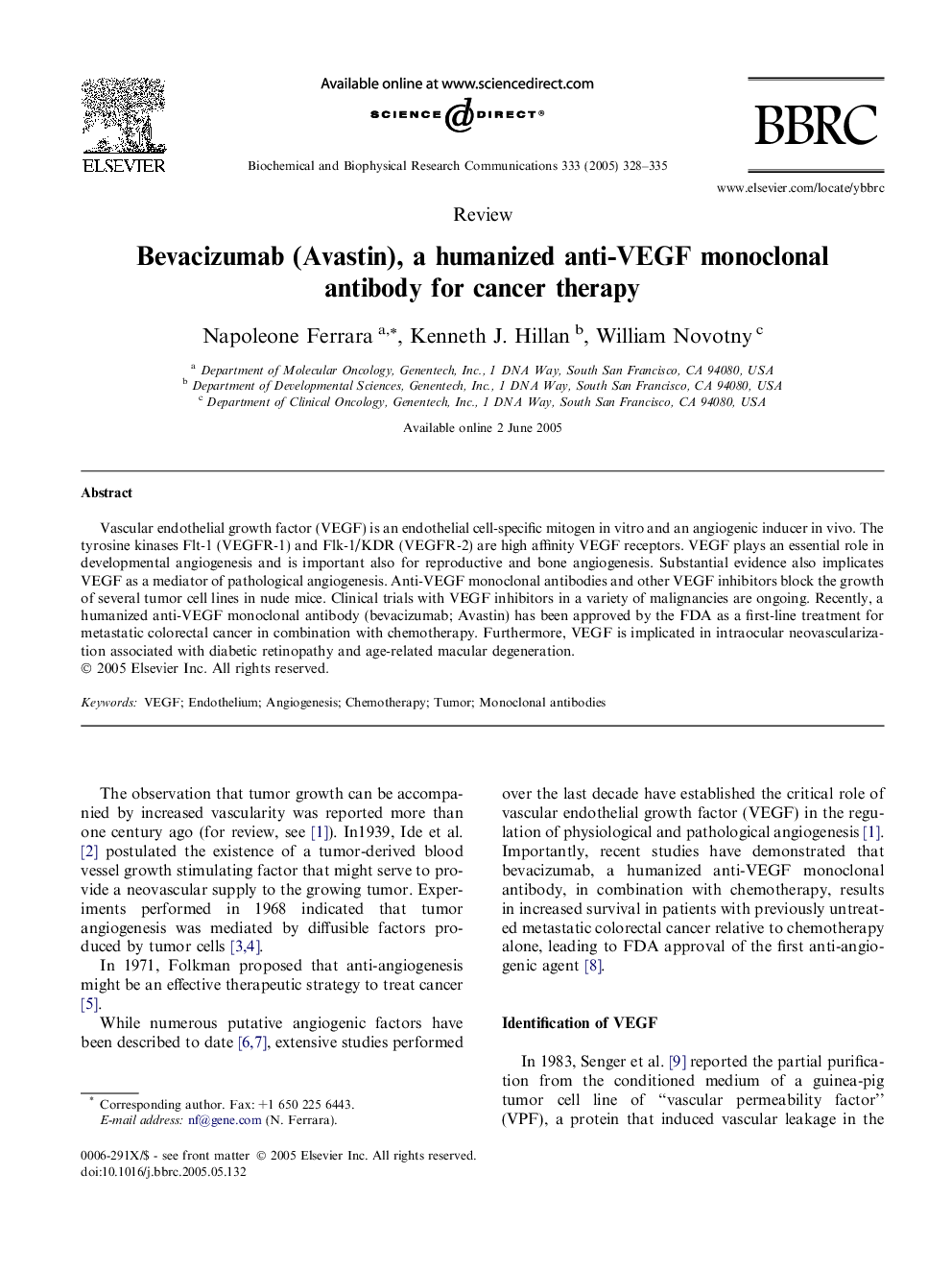| Article ID | Journal | Published Year | Pages | File Type |
|---|---|---|---|---|
| 10770042 | Biochemical and Biophysical Research Communications | 2005 | 8 Pages |
Abstract
Vascular endothelial growth factor (VEGF) is an endothelial cell-specific mitogen in vitro and an angiogenic inducer in vivo. The tyrosine kinases Flt-1 (VEGFR-1) and Flk-1/KDR (VEGFR-2) are high affinity VEGF receptors. VEGF plays an essential role in developmental angiogenesis and is important also for reproductive and bone angiogenesis. Substantial evidence also implicates VEGF as a mediator of pathological angiogenesis. Anti-VEGF monoclonal antibodies and other VEGF inhibitors block the growth of several tumor cell lines in nude mice. Clinical trials with VEGF inhibitors in a variety of malignancies are ongoing. Recently, a humanized anti-VEGF monoclonal antibody (bevacizumab; Avastin) has been approved by the FDA as a first-line treatment for metastatic colorectal cancer in combination with chemotherapy. Furthermore, VEGF is implicated in intraocular neovascularization associated with diabetic retinopathy and age-related macular degeneration.
Keywords
Related Topics
Life Sciences
Biochemistry, Genetics and Molecular Biology
Biochemistry
Authors
Napoleone Ferrara, Kenneth J. Hillan, William Novotny,
